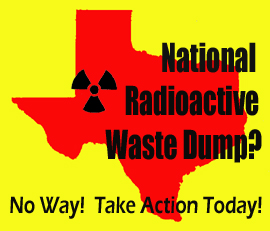 Public Citizen and Area Legislators Urge State to Deny Air Pollution Permit
Public Citizen and Area Legislators Urge State to Deny Air Pollution Permit
HOUSTON – Area legislators joined Public Citizen this week in urging environmental agencies to deny the White Stallion coal plant its air permit because if built, the facility would degrade air quality in Houston. The emissions from this proposed power plant would exacerbate the problem of smog in the Houston-Galveston-Beaumont region, which already is in violation, or “non-attainment,” of federal ozone standards and may soon have to meet higher standards as the result of a new proposal to strengthen the federal ozone rule
“The proposed White Stallion coal plant would harm the health of the people of Matagorda County, degrade the environment, and stifle economic development and tourism throughout the region,” said Ryan Rittenhouse, coal energy analyst with Public Citizen’s Texas office. “We are pleased to see Texas legislators step up to protect our citizens, the environment and Texas’ economic future.”
White Stallion’s air permit hearing before the State Office of Administrative Hearings begins today and will last through Feb. 19. That office will make a recommendation to the Texas Commission on Environmental Quality (TCEQ).
The air pollution permit is the first step; the project still will need a wastewater permit from the TCEQ and an additional permit from the Army Corps of Engineers.
If granted an air permit, White Stallion will increase emissions of nitrogen oxide (NOx), the principle component of ozone, by more than a third in Matagorda County, where the plant will be located. That translates to more than 4,000 tons per year of NOx that would blow into the Houston area, dramatically increasing ozone levels in the non-attainment region.
“The proposed White Stallion coal plant will be less than 17 miles from the Houston/Galveston non-attainment region. Coal plants such as this one are one of the largest, individual sources of smog-forming pollutants,” said State Rep. Ana E. Hernandez (D-Houston). “Particularly in light of new EPA ozone standards, why should we allow a coal plant to be built on our doorstep? It will only make it that much harder for us to clean up Houston’s air pollution.”
Last year, the Environmental Protection Agency (EPA) ruled that the TCEQ has not been adhering to the Clean Air Act in its issuance of new air permits, but the TCEQ has failed to change its permitting process.
For this reason, Texas legislators, including Reps. Hernandez, Jessica Farrar (D-Houston) and Kristi Thibaut (D-Houston), sent appeal letters this week to Dr. Al Armendariz, regional administrator of the EPA, urging the agency to step in and provide much needed guidance and oversight to the TCEQ. Their letters asked that the White Stallion power plant not be given an air permit to begin construction until the EPA ensures that constituents will receive the full public health protections of the federal Clean Air Act.
“I urge TCEQ and the EPA to deny the permit authorizing the White Stallion coal plant to be built in Matagorda County. Texas’ air quality must be improved for the good health of every Texan. The goal of clean air and clean water can be obtained by a commitment to reducing air contaminants,” Farrar said.
Despite the fact that a new coal plant could hinder Houston’s ability to meet federal regulations, the TCEQ refuses to predict or consider air impacts that are outside the non-attainment region. In fact, the TCEQ executive director filed legal briefs arguing that evidence showing White Stallion would contribute to ozone problems in the Houston area is irrelevant to the decision of whether to grant the White Stallion air permit. The TCEQ similarly refuses to consider cumulative impacts when granting an air permit, such as the fact that the 30-year-old Parish coal plant is only 50 miles northeast of the White Stallion site and also within the Houston/Galveston non-attainment region.
White Stallion would also pull 36,000 acre-feet of water from the Colorado River every year. Increased activity from the two barges required to deliver coal every day would contaminate the water with toxic runoff and erode the embankments.
The proposed plant would be located along a 100-year floodplain and would store coal ash waste on site. In the event of extreme weather, that toxic waste could easily wash into public waterways.
“The proposed White Stallion coal plant would dump thousands of tons of toxic pollutants into our air and water every year, when this region is already in non-attainment for clean air,” Thibaut said. “Furthermore, construction of this plant would remove 36,000 acre-feet of water each year from the Colorado River, which serves many drought-stricken areas of our state. As the elected representative for thousands of my constituents who would be affected, and as the mother of a small child, I cannot stand by as our air and water quality are further eroded.”
If the project is granted its air permit, advocates still have a chance to challenge the permit in state court and to reform the TCEQ through the sunset review process.
“The TCEQ is one of a number of state agencies that are about to undergo sunset review at the Texas Legislature. The sunset commission has the power to reform this agency and insist that any permits issued in the future adhere to the Clean Air Act,” said Tom “Smitty” Smith, director of Public Citizen’s Texas office. “With this process, Texas has the opportunity to ensure that the health of Texans and their environment are protected more than the profits of energy corporations.”
###
By promoting cleaner energy, cleaner government, and cleaner air for all Texans, we hope to provide for a healthy place to live and prosper. We are Public Citizen Texas.
Read Full Post »









